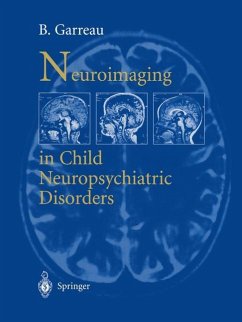
Negative Versus Positive Schizophrenia
Versandkostenfrei!
Versandfertig in 6-10 Tagen
76,99 €
inkl. MwSt.

PAYBACK Punkte
38 °P sammeln!
The positive versus negative distinction of schizophrenic disorders has pro moted ongoing research. Phenomenology, psychopathology, biology, genet ics, pharmacological and nonpharmacological treatment, psychosocial and longitudinal research: all have found a new focus of interest. This volume attempts to provide an unbiased picture of the status of American and Eu ropean knowledge regarding the positive/negative distinction. Researchers from North America and Europe describe the relation of modern concepts of positive and negative symptomatology to the original models of Rey nolds and Jackson....
The positive versus negative distinction of schizophrenic disorders has pro moted ongoing research. Phenomenology, psychopathology, biology, genet ics, pharmacological and nonpharmacological treatment, psychosocial and longitudinal research: all have found a new focus of interest. This volume attempts to provide an unbiased picture of the status of American and Eu ropean knowledge regarding the positive/negative distinction. Researchers from North America and Europe describe the relation of modern concepts of positive and negative symptomatology to the original models of Rey nolds and Jackson. Integrating phenomenological, genetic, and biological factors, the authors depict current methods of assessing positive and nega tive symptomatology, differentiating between primary and secondary symp tomatology, and using pharmacological and nonpharmacological treatment. The stability of positive and negative symptoms over time and evidence for the occurrence of separate positive and negative episodes over a long-term course of schizophrenia are extensively discussed in terms of their implica tions on the positive/negative construct. The relevance of the positive/nega tive dichotomy to child and adolescent schizophrenia is also debated. The main aim of this book is not to advocate a single concept and present only arguments supporting it, but to discuss important controversies. Prob lems concerning a concept cannot be solved by ignoring them. However, unanswered questions may be resolved through discussion, debate, and con structive compromise.














